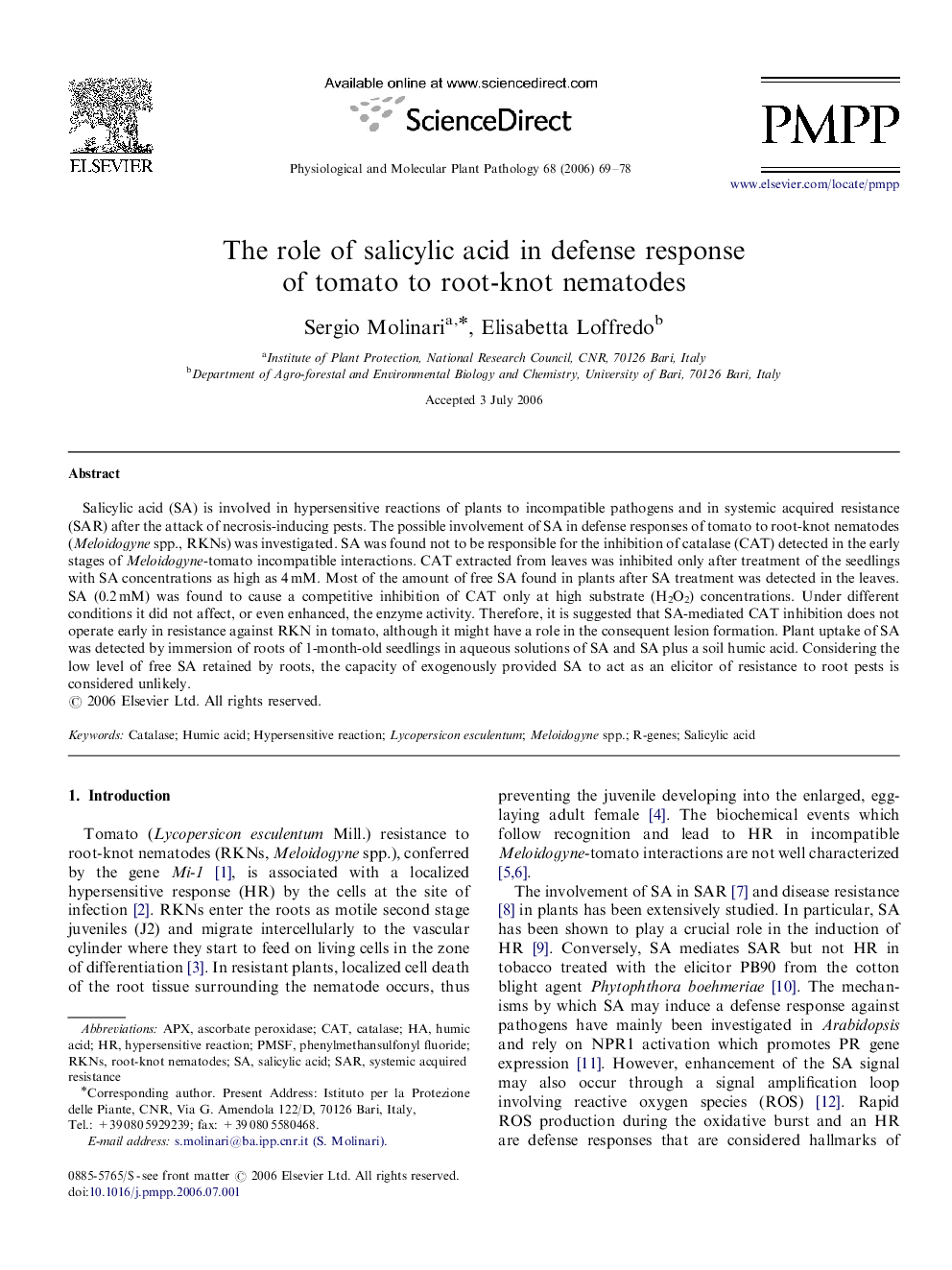| Article ID | Journal | Published Year | Pages | File Type |
|---|---|---|---|---|
| 2836826 | Physiological and Molecular Plant Pathology | 2006 | 10 Pages |
Salicylic acid (SA) is involved in hypersensitive reactions of plants to incompatible pathogens and in systemic acquired resistance (SAR) after the attack of necrosis-inducing pests. The possible involvement of SA in defense responses of tomato to root-knot nematodes (Meloidogyne spp., RKNs) was investigated. SA was found not to be responsible for the inhibition of catalase (CAT) detected in the early stages of Meloidogyne-tomato incompatible interactions. CAT extracted from leaves was inhibited only after treatment of the seedlings with SA concentrations as high as 4 mM. Most of the amount of free SA found in plants after SA treatment was detected in the leaves. SA (0.2 mM) was found to cause a competitive inhibition of CAT only at high substrate (H2O2) concentrations. Under different conditions it did not affect, or even enhanced, the enzyme activity. Therefore, it is suggested that SA-mediated CAT inhibition does not operate early in resistance against RKN in tomato, although it might have a role in the consequent lesion formation. Plant uptake of SA was detected by immersion of roots of 1-month-old seedlings in aqueous solutions of SA and SA plus a soil humic acid. Considering the low level of free SA retained by roots, the capacity of exogenously provided SA to act as an elicitor of resistance to root pests is considered unlikely.
